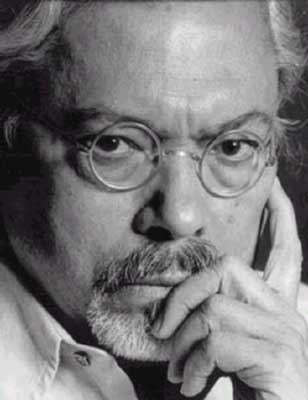| Infante Guillermo Cabrera |

Born April 22, 1929, Gibara, Cuba died February 21, 2005, London, England.
Novelist, short-story writer, film critic, and essayist who was the most prominent Cuban writer living in exile and the best-known spokesman against Fidel Castro’s regime. In 1998 he was awarded Spain’s Cervantes Prize, the most prestigious and remunerative award for Spanish-language writers.
In the 1940s Cabrera Infante moved to Havana with his impoverished family. At first he worked as a proofreader at a newspaper; later, using the pseudonym “Cain,” he became a movie critic for Carteles, a weekly with a wide circulation. Cabrera Infante was essentially self-taught; cinema was one of his most important teachers. In the late 1940s he was among the founders of Nueva Generación (“New Generation”), a journal opposing the dictatorship of Fulgencio Batista. (Cabrera Infante’s father was an early member of the Cuban Communist Party.) With the triumph of the revolution, Cabrera Infante vaulted into a position of power as founder and editor of Lunes (“Monday”), the literary weekly of the newspaper Revolución. The Castro regime soon closed the magazine, and Cabrera Infante was sent as cultural attaché to Brussels. In 1965 he broke with the Castro government and remained abroad, eventually settling in London.
Cabrera Infante’s first noteworthy collection of short stories was As en la paz como en la guerra (1960; “In Peace as in War”). But he acquired international renown with Tres tristes tigres (1964; Three Trapped Tigers), winner of the Bibliotheca Breve Prize given by the Spanish publisher Seix Barral. In the manner of James Joyce’s Ulysses, this highly successful novel chronicles the adventures of several young characters in Havana’s prerevolutionary nightlife. It is a funny book, bristling with the textual games and puns of all sorts that characterize Cabrera Infante’s work. His politics, but perhaps mostly his achievements, made him persona non grata with the Cuban cultural establishment. Among his many later publications is La Habana para un infante difunto (1979; Infante’s Inferno), but even it fell short of Three Trapped Tigers. His film criticism was collected in Un oficio del siglo veinte (1963; A Twentieth Century Job), and his essays in Mea Cuba (1992; Eng. trans. Mea Cuba). In 2001, Cabrera Infante translated into English his collection of short stories Delito por bailar el chachach (1995; Guilty of Dancing the Chachacha).
|
| Back » |

